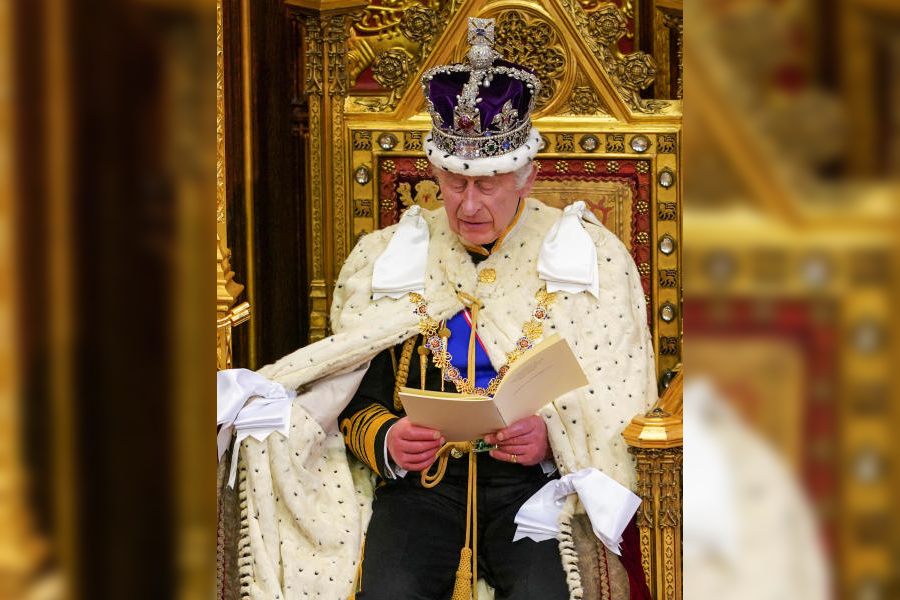On a fine November morning when London was bathed in fine autumn sunshine with trees turning to gold, Charles III read his first King’s speech at the state opening of parliament in London.
But his words had been written by the Prime Minister, Rishi Sunak, whose prospects in next year’s general election depends partly on the legislative programme outlined by the monarch.
While wars range in Ukraine and Gaza, Tuesday’s pomp and ceremony in the Palace of Westminster reflected stability and a thousand years of history.
Charles and Queen Camilla arrived in the jubilee state coach from Buckingham Palace. “Black Rod”, for the first time a woman, Sarah Clarke, banged three times on the doors of the Commons, to summon MPs to “immediately attend his Majesty in the chamber of the peers”. Several of the latter are now Indian, of course. Karan Bilimoria, for example, could be seen scurrying among the crowds.
Rishi and the opposition Labour leader, Keir Starmer, appeared to chat amicably as they walked together — as required by tradition — from the Commons to the Lords. Other parliaments probably could do with such civility among political adversaries.
Charles began by remembering his mother: “It is mindful of the legacy of service and devotion to this country set by My beloved Mother, the late Queen, that I deliver this, the first King’s Speech in over 70 years. The impact of Covid and the war in Ukraine have created significant long-term challenges for the United Kingdom.”
The last King to oversee the state opening of parliament was George VI in 1950.
Rishi, who had a telephone conversation with Narendra Modi last week, squeezed in an indirect reference to India: “A bill will be brought forward to promote trade and investment with economies in the fastest growing region in the world. My ministers will continue to negotiate trade agreements with dynamic economies, delivering jobs and growth in the United Kingdom.”
Rishi has so far refused to join the call for a ceasefire in Israel’s military action in Gaza.
What the King said was: “My ministers will work closely with international partners to support Ukraine, strengthen Nato and address the most pressing security challenges. This includes the consequences of the barbaric acts of terrorism against the people of Israel, facilitating humanitarian support into Gaza and supporting the cause of peace and stability in the Middle East.”
The most important area for the government is the economy, with people facing a cost of living crisis.
“My ministers will support the Bank of England to return inflation to target by taking responsible decisions on spending and borrowing,” Charles said. “These decisions will help household finances, reduce public sector debt, and safeguard the financial security of the country.”
There was a promise to cut down on illegal immigration, a responsibility that rests with the Goan-origin home secretary Suella Braverman, whose language has become increasingly shrill.
It will become an offence to sell cigarettes to children under 14.











